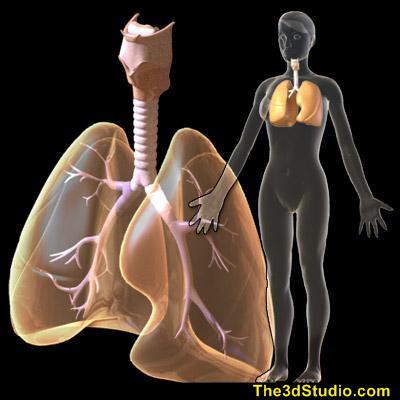We go through periods of time in our lives when the demands are greater and the stress load is heavier. Regardless of the reasons – illness, relationship difficulties, work struggles, caring for an aging parent or ailing child – there can be a physical impact. We may turn to food for comfort, or we may not nourish ourselves adequately. During times of stress there are actual physiological changes that happen in our bodies, one of which is weight gain. It may not happen overnight, but if we do not pay attention to our body’s needs, over time we may notice we are putting on the pounds.
Our adrenal glands govern our stress response, by secreting hormones relative to our stress levels. They actually help control many hormonal cycles and functions in our body. When the adrenal glands are overworked, the body prepares for disaster, by storing fat and calories. We crave foods, we lose precious energy, and we gain weight. So how can we keep the heavier stress load from equaling heavier bodies?
For millions of years, humans were forced to protect themselves from environmental factors. From the earliest days of dinosaurs and cavemen, nature has proven its ability to put fear in human beings. Life and death circumstances have evolved around the ability to understand danger, and seek protection and survival. If you were being chased by a predator, your adrenal glands initiated a “fight or flight” response, releasing adrenaline and cortisol into the body. These hormones provided extra physical energy and strength from stored carbohydrates and fats.
While most of our stressors are not the same our earliest ancestors, the body’s natural course of evolution has maintained this original fight-or-flight stress response. But whether we are being physically threatened or not, with any increased stress our body looks to its stored fuel, and then replenishes it when used. Also, with increased levels of cortisol, our body also does not respond as well to leptin, the hormone that makes us feel full, so we eat more.
Modern-day stress may be more psychological than physiological, but it is also more constant. Many of us face chronic stress as a way of life, which means we have consistently elevated levels of cortisol. Now the body thinks it continually needs extra fuel, and typically stores that as fat around the abdomen, or as it’s commonly referred to, the old “spare tire.”
Belly fat: a common sign of adrenal fatigue
Adrenal imbalance causes a number of issues, including an expanded waistline. The science behind it is quite interesting. Normally when we feel begin to feel hungry, our blood sugar drops and the brain sends a message to the adrenal glands to release cortisol. Cortisol activates glucose, fats, and amino acids to keep our body fueled with energy until we eat. Cortisol maintains blood sugar levels, and insulin helps our cells absorb glucose. When we have long term stress, both insulin and cortisol remain elevated in the blood, and the extra glucose is stored as fat mostly in the abdomen.
Here’s where it gets interesting. Scientists have discovered that fat cells actually have special receptors for the stress hormone cortisol, and there are more of these receptors in our abdominal fat cells than anywhere else in our bodies! In addition, scientists have shown that belly fat is actually an active tissue, acting as an endocrine organ that responds to the stress response by actually welcoming more fat to be deposited! This is an ongoing cycle until we take steps to correct this adrenal imbalance. How do we do that?
What you eat matters. Although it sounds ironic, if you want your body to believe that it is not in danger of starving to death, you need to eat healthy food at regular intervals. Since cortisol helps regulate blood sugar, keeping glucose levels balanced will take some of the stress off the adrenal glands. Three nutritious meals and two healthy snacks spread out across the day will keep our adrenal glands steady.
When you eat matters. Our natural circadian rhythms can help us know when our bodies need nourishment and fuel. Cortisol’s cycle complements our body’s own rhythms, although is highest in the morning and declines gradually throughout the day. When we eat we elevate our cortisol, so it’s ideal to consume larger meals earlier in the day, which also helps our body prepare itself for restful sleep at night.
Have healthy foods on hand. It may be easy to reach for sweets and caffeine for quick energy, but these actually backfire on us, dropping our blood sugar levels rapidly. Reaching for micronutrient-rich foods, such as lean protein, avocado, fresh fruits and vegetable, garlic, and ginger will more adequately support adrenal functioning.
Supplement your daily diet. Adrenal expert, Shawn Talbot, PhD, says, “When it comes to dietary supplementation for stress adaptation and cortisol control, the first line of defense appears in the form of a comprehensive multivitamin/mineral supplement.” The benefits of a daily multivitamin enhance many of the functions in our body. Consider the high-quality multivitamin mineral complex we have in our Program at Women to Women.
For more information on healthy eating and adrenal glands, see my articles about how to eat for your adrenal health.
Our fast-paced world is never unplugged. We rarely have time to disconnect from technology, our cell phones, the Internet, email, and even television. And our adrenal glands notice! Instead of being tired, wired, and overeating, consider slowing down and restoring balance to your adrenal glands, and your life. You may think that by moving fast you will lose weight, but in fact, when stress levels are high and our adrenals are working overtime, we will stay in a perpetuating cycle of adding pounds. Here’s how we can learn to pace ourselves.
Sleep
Many of my patients complain of being tired all day then having trouble sleeping at night. They are in an upside down circadian rhythm, which affects cortisol levels, causing irregular sleep patterns. You can correct these by eating less food late in the day, turning off all technology including television, by 8 p.m., and by trying to be in bed and asleep by 10 p.m. The goal is to have at least eight hours of sleep, so our bodies can rest and regulate our hormonal cycles.
Exercise
Our adrenals respond to stress, even if we think it is positive. Exercise is positive, and can help us reduce stress, but only if it does not make us feel tired. When we are exhausted, our adrenals are already working hard, and exercise can put added strain on them. The goal is to keep your heart rate under 90 beats per minute when working out. If you don’t regularly exercise, walking 15 minutes once or twice a day after meals, outside in fresh air, makes our adrenal glands, and our mind and body, very happy.
Have fun
Don’t forget that having fun, laughing, and enjoying your time is a very important way to relax! We all need to make having fun a priority, the benefits are amazing!
Don’t forget to breathe
Deep breaths in and out of your nose can not only slow your heart rate down, but will calm your entire body. Sometimes when we are under stress our breathing becomes shallow, and fast. It only takes three or four deep breaths to feel better. Try to remember that slowing down our breath, as well as our life, even for a few minutes, can make a big difference in reducing our stress level.
It isn’t always easy to let things go. We put pressure on ourselves to meet the demands in our lives, to take care of others, to do well in our endeavors, and to make everyone around us happy. But when we forget about ourselves in that equation, the stress will appear as extra pounds, or other things that impede our health and our functioning. When we live with continually elevated levels of stress, our body adjusts to the “crisis mode” and sometimes needs help learning how to live in a calmer state. The first step is to heal your adrenals. By following some of the tips in this article, giving yourself time, and being patient, you will begin to replenish your energy, lose extra weight, and most importantly, feel better.
Related articles















 Obesity in America: Safe Rapid weight loss, Obesity is preventable
Obesity in America: Safe Rapid weight loss, Obesity is preventable
 Testosterone restoration
Testosterone restoration






















 The nitty gritty about our friend sometimes foe called Cortisol
The nitty gritty about our friend sometimes foe called Cortisol
 Stress Management – Happy Halloween!
Stress Management – Happy Halloween!
 What stress does to the body
What stress does to the body Everything You Wanted to Know about Stress!!!!
Everything You Wanted to Know about Stress!!!! natural sleep: Integrative Therapeutics Cortisol Manager, 90-Count
natural sleep: Integrative Therapeutics Cortisol Manager, 90-Count